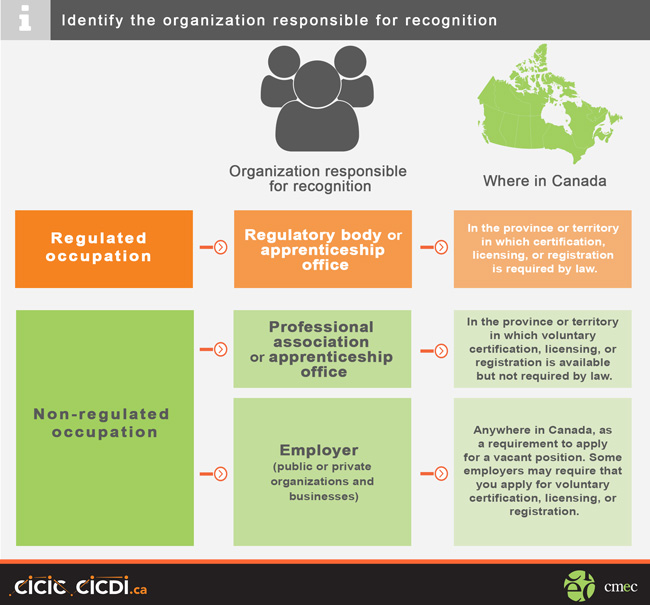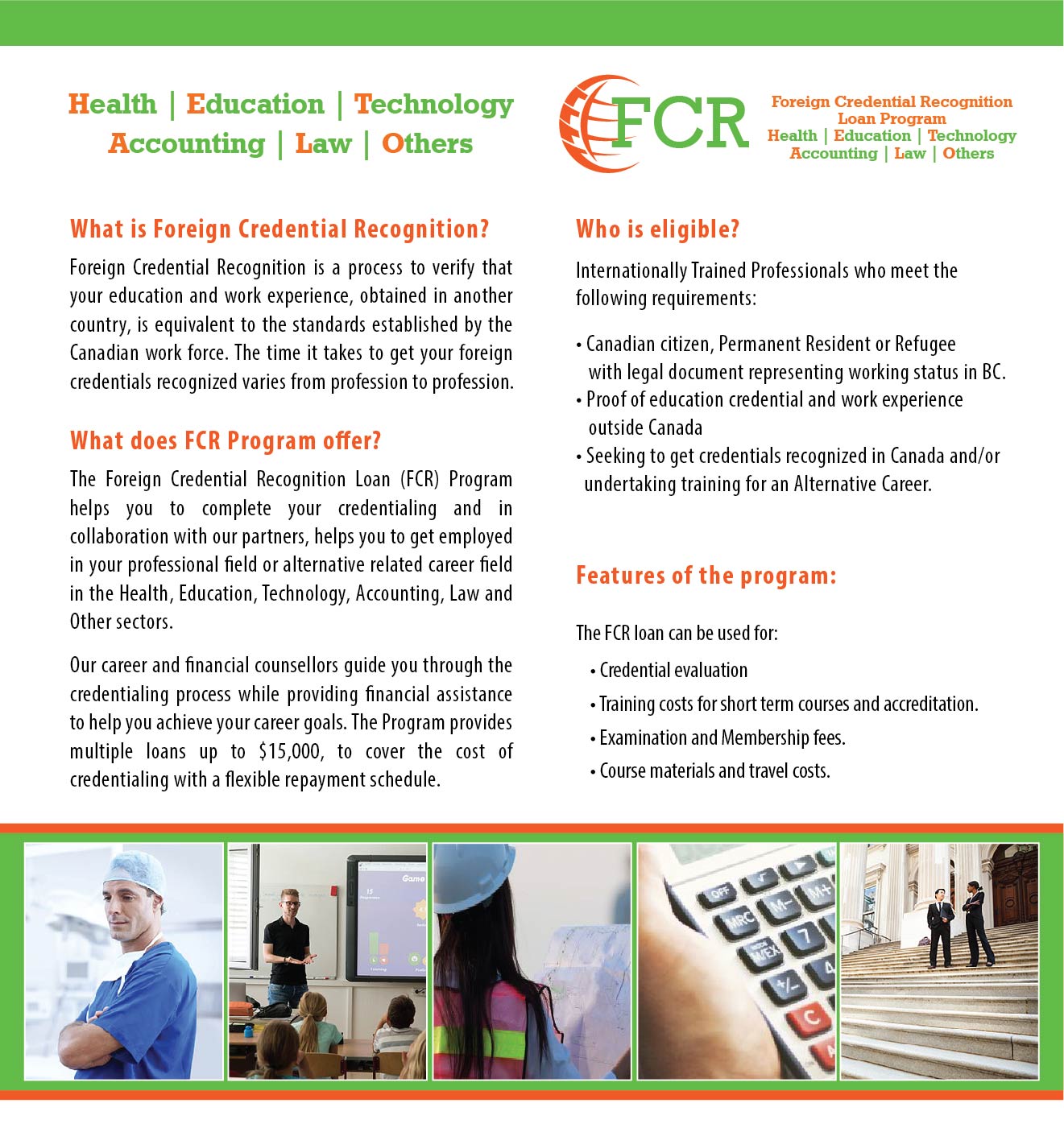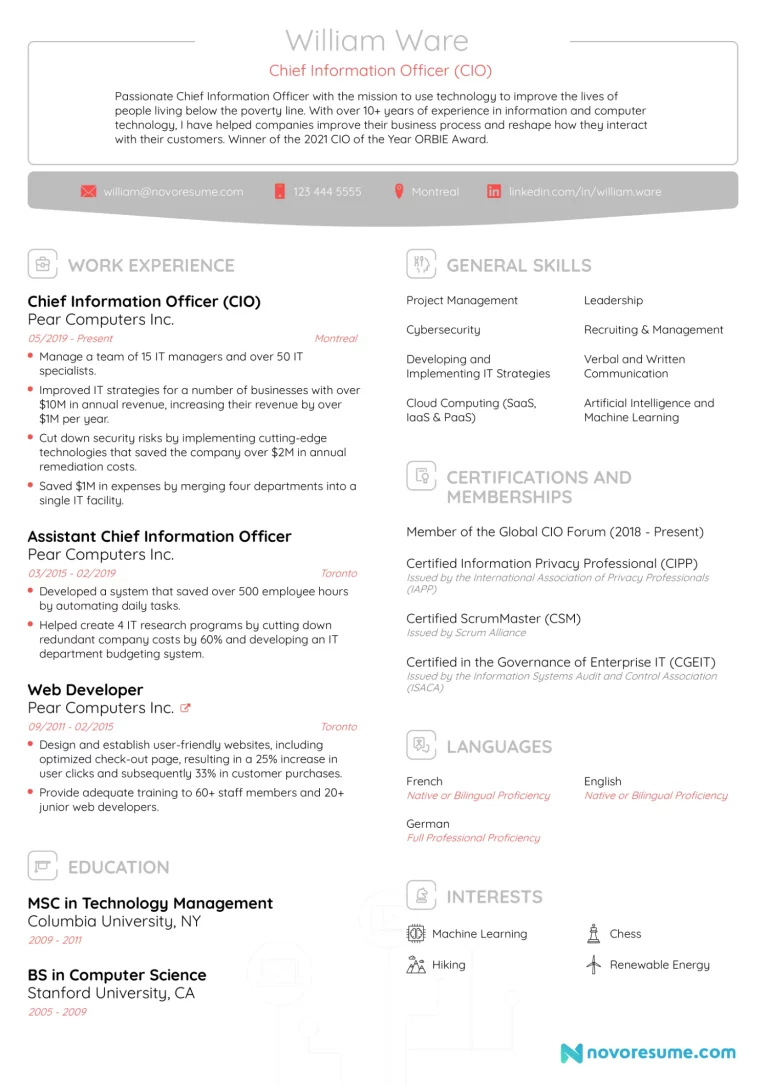How To Get Your Foreign Credentials Recognized In Canada?
Are you a newcomer to Canada with foreign credentials? Finding a job that matches your qualifications can be challenging if your credentials are not recognized. In this article, we will guide you through the steps to get your foreign credentials recognized in Canada. From understanding the recognition process to gathering the necessary documents, we’ve got you covered. With our help, you’ll be one step closer to starting a successful career in Canada.

Understanding the Importance of Credential Recognition
Why is credential recognition important in Canada?
Credential recognition holds great importance in Canada, particularly for immigrants who have obtained their qualifications from foreign countries. When individuals move to Canada, they bring with them their skills, knowledge, and experiences. However, without proper recognition of their credentials, they may face significant barriers in entering the Canadian labor market and obtaining employment in their chosen field.
Benefits of having your foreign credentials recognized
Having your foreign credentials recognized in Canada opens up a world of opportunities. It enables you to showcase your education, training, and expertise, which can greatly enhance your chances of securing a job in line with your qualifications. Recognized credentials also provide you with the ability to compete on an equal footing with Canadian-born individuals and access higher-paying positions. Additionally, credential recognition allows you to establish professional credibility and gain the trust of employers, clients, and colleagues.
Challenges faced by immigrants with unrecognized credentials
Immigrants with unrecognized credentials face a multitude of challenges upon arrival in Canada. Without credential recognition, they may be forced to work in survival jobs that are unrelated to their expertise and provide low wages. This not only impacts their personal and professional fulfillment but also hinders their integration into the Canadian society. The lack of recognition can also limit their career growth and opportunities for advancement. Moreover, individuals may experience feelings of frustration, disappointment, and a loss of self-confidence as a result of not being able to fully utilize their educational qualifications.
Researching Credential Recognition in Canada
Understanding the Canadian regulatory bodies
To navigate the process of credential recognition in Canada, it is important to have an understanding of the Canadian regulatory bodies. These bodies are responsible for assessing and evaluating foreign credentials and determining their Canadian equivalency. They have established standards and requirements that need to be met in order to obtain recognition for your qualifications. Familiarizing yourself with these regulatory bodies will help you identify the appropriate body for your profession or occupation.
Identifying the requirements for credential recognition
Each regulatory body in Canada has specific requirements for credential recognition. It is crucial to identify and understand these requirements in order to begin the process of having your foreign credentials recognized. Requirements may include educational documents, work experience, language proficiency, and examination results. By carefully reviewing these requirements, you can ensure that you have all the necessary documentation and qualifications to proceed with the recognition process.
Gathering information about assessment processes
Once you have identified the appropriate regulatory body and familiarized yourself with the requirements, it is essential to gather information about the assessment processes. This includes understanding the steps involved, the documents you need to submit, and the fees associated with the assessment. Taking the time to research and gather this information will help you navigate the process more effectively and avoid any unexpected surprises along the way.

Documenting and Translating Your Credentials
Gathering required documents
To begin the process of credential recognition, you will need to gather all the required documents. These may include your educational qualifications, transcripts, professional certificates, and any other supporting documentation related to your field of expertise. It is important to ensure that you have all the necessary documents in the required format, as missing or incomplete documentation can delay the assessment process.
Translating documents into English or French
If your documents are in a language other than English or French, you will need to have them translated by a certified translator. The translation must be accurate and faithfully represent the content of the original documents. Having your documents translated into English or French ensures that the assessing bodies are able to understand and evaluate your qualifications effectively.
Obtaining notarization or authentication if necessary
Depending on the requirements of the regulatory bodies, you may need to have your documents notarized or authenticated. Notarization involves a notary public certifying that the documents are genuine, while authentication involves an official government authority verifying the authenticity of the documents. Notarization and authentication may be necessary for certain countries or institutions, and it is important to research and comply with the specific requirements.
Assessment and Verification of Foreign Credentials
Determining the appropriate assessment agency
After gathering and preparing your documents, the next step is to determine the appropriate assessment agency for your credentials. Each regulatory body may have its own preferred assessment agency or organizations that it recognizes. It is essential to ensure that you choose the right agency that specializes in assessing credentials for your specific profession or occupation.
Submitting your credentials for evaluation
Once you have identified the appropriate assessment agency, you will need to submit your credentials for evaluation. This typically involves completing an application form and providing all the required documents as per the agency’s guidelines. It is important to carefully follow the instructions and meet all the deadlines to avoid any delays in the assessment process.
Paying relevant assessment fees
Most assessment agencies charge fees for evaluating and assessing foreign credentials. These fees cover the administrative costs involved in the assessment process. It is important to budget for these fees and ensure that you make the necessary payments on time. Keep in mind that the fees may vary depending on the regulatory body and the complexity of the assessment required for your credentials.

Alternative Pathways for Credential Recognition
Leveraging bridging programs and courses
In addition to the traditional recognition process, there are alternative pathways available to immigrants for credential recognition. Bridging programs and courses are specifically designed to help individuals with foreign credentials transition into the Canadian workforce. These programs provide additional training, education, and support to help immigrants bridge any gaps in their qualifications and adapt to the Canadian work environment.
Seeking professional associations or regulatory bodies
Many professions have professional associations or regulatory bodies that can provide guidance and support in the credential recognition process. These organizations are dedicated to safeguarding the professional standards of their respective industries and can assist immigrants in navigating the recognition process. They may offer resources, mentorship opportunities, and networking events that can help immigrants connect with professionals in their field and gain valuable insights.
Exploring academic upgrading and retraining options
For individuals whose credentials are not fully recognized, exploring academic upgrading and retraining options can be beneficial. This involves enrolling in further education or training programs to acquire the additional qualifications required for recognition in Canada. Universities, colleges, and vocational institutions offer a range of programs that can help immigrants upgrade their skills, gain additional qualifications, and increase their chances of obtaining recognition for their credentials.
Navigating the Provincial Credential Recognition Processes
Understanding the variations across provinces
It is essential to understand that the credential recognition processes may vary across different provinces in Canada. Each province has its own regulatory bodies and requirements for assessing foreign credentials. The criteria, timelines, and fees may differ, so it is important to research and understand the specific recognition process in the province where you intend to live and work.
Reviewing provincial regulatory requirements
Once you have identified the province where you plan to settle, it is crucial to review the regulatory requirements specific to that province. This includes understanding the documentation needed, application procedures, and any additional requirements or examinations that may be required. By familiarizing yourself with the provincial regulatory requirements, you can ensure that you fulfill all the necessary criteria to have your credentials recognized.
Contacting the provincial regulatory bodies
To navigate the provincial credential recognition processes, it is highly recommended to directly contact the provincial regulatory bodies for your profession or occupation. These bodies can provide you with accurate and up-to-date information regarding the recognition process in their province. They can guide you through the application process, answer any questions you may have, and provide you with the necessary resources to facilitate your credential recognition journey.

Preparing for Examinations or Additional Requirements
Identifying additional exams or assessments needed
Depending on your profession or occupation, you may be required to pass additional exams or assessments to obtain recognition for your credentials in Canada. It is important to identify these exams or assessments early on in the process. Research the specific requirements and prepare accordingly by studying the relevant materials and seeking guidance from professionals in your field.
Preparing for language proficiency tests if required
Language proficiency is an important factor in the process of credential recognition. If English or French is not your first language, you may be required to pass language proficiency tests such as the International English Language Testing System (IELTS) or the Canadian English Language Proficiency Index Program (CELPIP). It is crucial to prepare for these tests by enrolling in language courses, practicing regularly, and familiarizing yourself with the test format.
Finding resources for exam preparation
To increase your chances of success in any required examinations or assessments, it is essential to utilize available resources for preparation. This can include textbooks, study guides, online practice tests, and preparatory courses for specific exams. Additionally, reaching out to professional associations, community organizations, and settlement agencies can provide valuable insights and guidance on how to effectively prepare for the exams and assessments.
Obtaining a Canadian Equivalency Statement
Applying for a Canadian equivalency assessment
Once you have completed all the necessary steps, including document gathering, translation, assessment, and examination, you can apply for a Canadian equivalency assessment. This assessment determines the equivalency of your foreign credentials to Canadian standards. The process typically involves submitting an application, along with the required documents and fees, to the appropriate regulatory body. It is important to follow the instructions carefully and provide all the requested information to avoid any delays in the assessment process.
Receiving a statement of equivalency
Upon successful completion of the equivalency assessment, you will receive a statement of equivalency. This statement confirms that your foreign credentials have been recognized and deemed equivalent to Canadian standards. It serves as official proof of your qualifications, enabling you to apply for jobs in your field and pursue further educational opportunities in Canada. Keep the statement of equivalency in a safe place, as you may need to provide it as proof of your credentials in the future.
Using the equivalency statement for employment or education
Once you have obtained the equivalency statement, you can use it to support your applications for employment or further education in Canada. Include the statement of equivalency in your resume or curriculum vitae, and provide it to potential employers or educational institutions as proof of your recognized qualifications. This statement will significantly enhance your chances of securing employment in your chosen field and enable you to pursue further career or educational goals.

Appealing Credential Recognition Decisions
Understanding the appeal process and timeline
In some cases, individuals may find their credential recognition decisions to be unsatisfactory or not aligned with their expectations. It is important to understand the appeal process and timeline if you wish to challenge a decision made by a regulatory body. Typically, there are specific procedures and timelines in place for submitting an appeal, and it is important to adhere to these guidelines to ensure your appeal is considered.
Gathering additional supporting documents
To strengthen your appeal, gather additional supporting documents that may reinforce your case. This can include updated certifications, references, testimonials, or any other evidence that showcases your qualifications and expertise. Presenting a compelling case with strong supplementary materials may increase your chances of a favorable outcome in the appeal process.
Submitting an appeal to the appropriate body
Once you have gathered all the necessary supporting documents, you can submit your appeal to the appropriate appeals body or appeals committee. Follow the instructions provided by the regulatory body and ensure that you submit the appeal within the designated timeline. Be clear, concise, and specific in expressing your concerns and reasons for appealing the initial decision. Provide all the requested documents and information to support your case.
Support and Resources for Immigrants
Accessing settlement agencies and support organizations
During the process of credential recognition, it is essential to seek support from settlement agencies and other support organizations. These agencies and organizations specialize in assisting immigrants with various aspects of settling in Canada, including credential recognition. They can provide guidance, resources, counseling, and workshops to help you navigate the recognition process successfully. Take advantage of their expertise and knowledge, as they can greatly enhance your chances of having your credentials recognized.
Attending information sessions and workshops
Information sessions and workshops conducted by settlement agencies and other organizations can be invaluable in gaining insight and knowledge about the credential recognition process. These sessions may cover topics such as documentation requirements, assessment procedures, language proficiency, and interview techniques. Attending these sessions can help you better understand the process, address any concerns or questions, and connect with other individuals going through similar experiences.
Seeking guidance from immigration consultants or lawyers
If you find the process of credential recognition overwhelming or need additional assistance, it may be beneficial to seek guidance from immigration consultants or lawyers who specialize in this area. These professionals can provide personalized advice, guidance, and support tailored to your specific situation. They can help you navigate the complex processes, review your documentation, and ensure that you are well-prepared to present your credentials effectively.
In conclusion, understanding the importance of credential recognition and navigating the process effectively is crucial for immigrants to succeed in Canada. By researching the requirements, gathering and translating documents, undergoing assessments, exploring alternative pathways, understanding provincial processes, preparing for exams, and seeking support, immigrants can enhance their chances of having their foreign credentials recognized. With recognized credentials, immigrants can unlock employment opportunities that align with their qualifications, contribute their skills and expertise to the Canadian workforce, and achieve their professional goals in the country.






